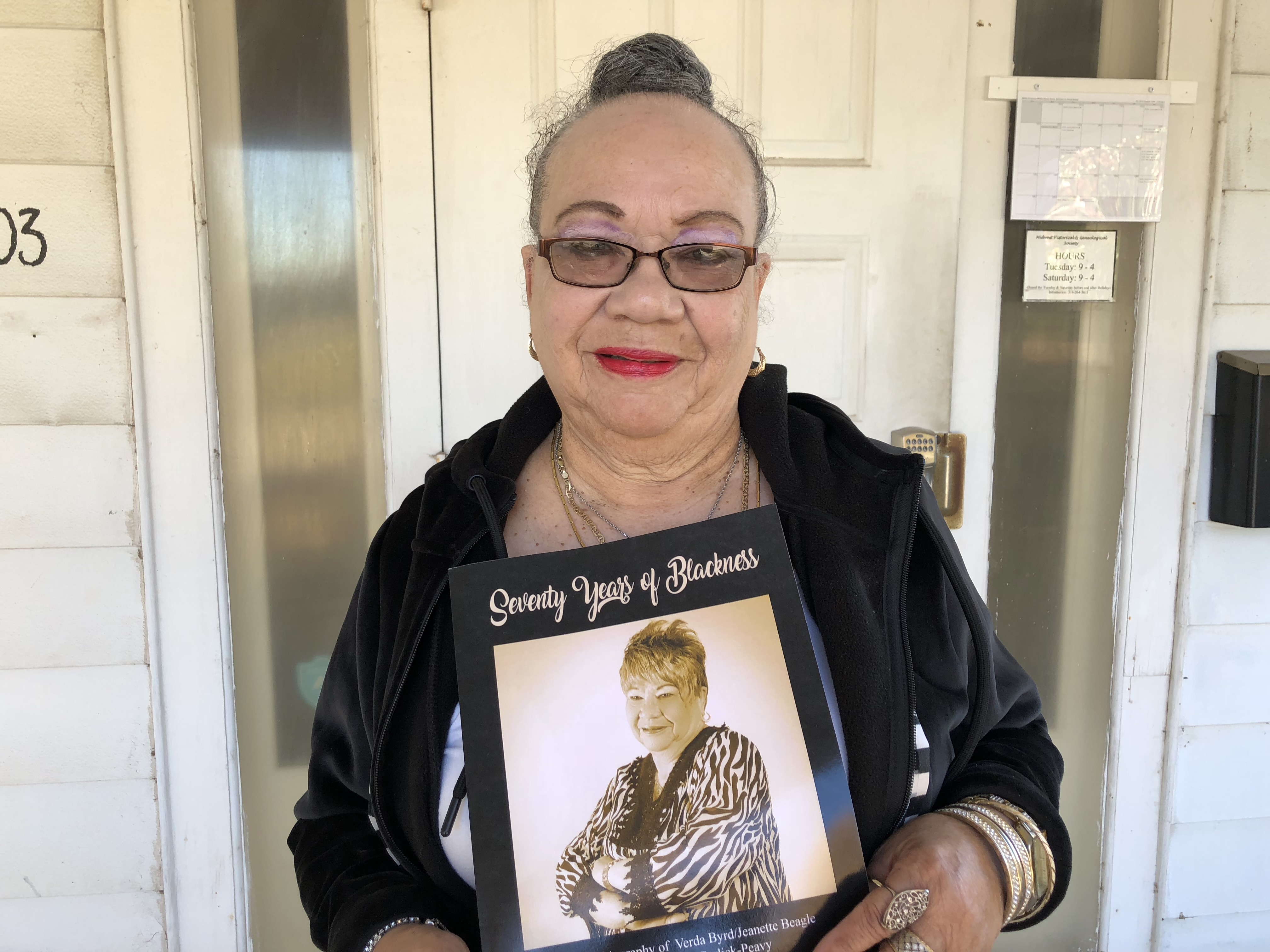Growing up in Newton, Verda Byrd felt lucky to be the daughter of Ray Wagner, an African American railroad porter, and his wife, Edwinna.
“They loved me,” Verda said. “They were my world. That’s all I knew.”
But there was one thing Verda didn’t know about the Wagners: They had adopted her from a white couple in Kansas City, Mo. With the cooperation of Missouri authorities, who falsified a copy of Verda’s birth certificate, the Wagners kept their adopted daughter’s background secret for more than 70 years.
Byrd, 76, discovered the truth five years ago. She recently spoke to members of the Midwest Historical & Genealogical Society about her experience, which she’s written about in a book called “70 Years of Blackness” (available from amazon.com)
Byrd was born as Jeanette Beagle in Kansas City in 1942, the youngest of Daisy and Earl Beagle’s five children. According to what Byrd has been able to piece together, her parent were one step from homelessness, switching rooming houses whenever rent came due. Byrd and her siblings were placed with a welfare agency.
The Wagners first served as Byrd’s foster parents, then “loved me so much they adopted me,” she said.
About the time her adoption became official, someone created a second birth certificate showing that Byrd was the biological daughter of the Wagners.
Byrd has mostly fond memories of growing up in Newton. Part of the town’s tiny black minority, she says she never personally felt discriminated against. The schools were desegregated and Byrd attended Bethel College in North Newton for two years before leaving the area. Ray Wagner’s salary put the family solidly in the middle class. She grew up going to a black church and beauty shop, dated young black men and attended civil rights marches with her parents, who were both active in the local NAACP chapter.
When Byrd was about 10 years old, she learned from Edwinna that she’d been adopted. She isn’t sure why the Wagners kept the rest of her background a secret.
The Wagners died in Arizona, where they’d retired, within days of each other in 1983. Going through family papers,Byrd found an adoption record with the name “Jeanette Beagle”
Three decades later, Byrd decided to investigate. She asked for and received from a Kansas City court the identity of her birth parents – Daisy and Earl Beagle.
About that time, a NAACP representative drew national headlines when it was revealed that she was a white woman claiming to be black. Byrd contacted a television station to tell her story and it “went viral.”
She was flown to New York to appear on a talk show. People magazine did a story on her.
Not everyone seemed to understand why she was speaking out, Byrd said. “I had lot of haters. People said I was too white to be black, too black to be white. What difference does it make? I still remain Verda Byrd.”
Byrd briefly reunited with three of her biological sisters but they had a falling out, she said, after one “used the n-word. That did not go well with me.”
Today, she lives in Converse, Texas, with Trancle Byrd, her husband of 38 years. She has one grown daughter.
Byrd harbors no ill will toward her biological mother, calling her adoption “the best thing that Daisy Beagle could do for me” and noting that thousands of children in similar situations today “need love, a good home, a forever home like I had.”
Her adoptive parents, the Wagners, forever changed and shaped her life by keeping her real identity secret. But more important, Byrd said, they “taught me right and wrong and that’s what I have done with my life.”
“I became a strong black woman – white woman – whatever you want to call it. And I love my life.”










